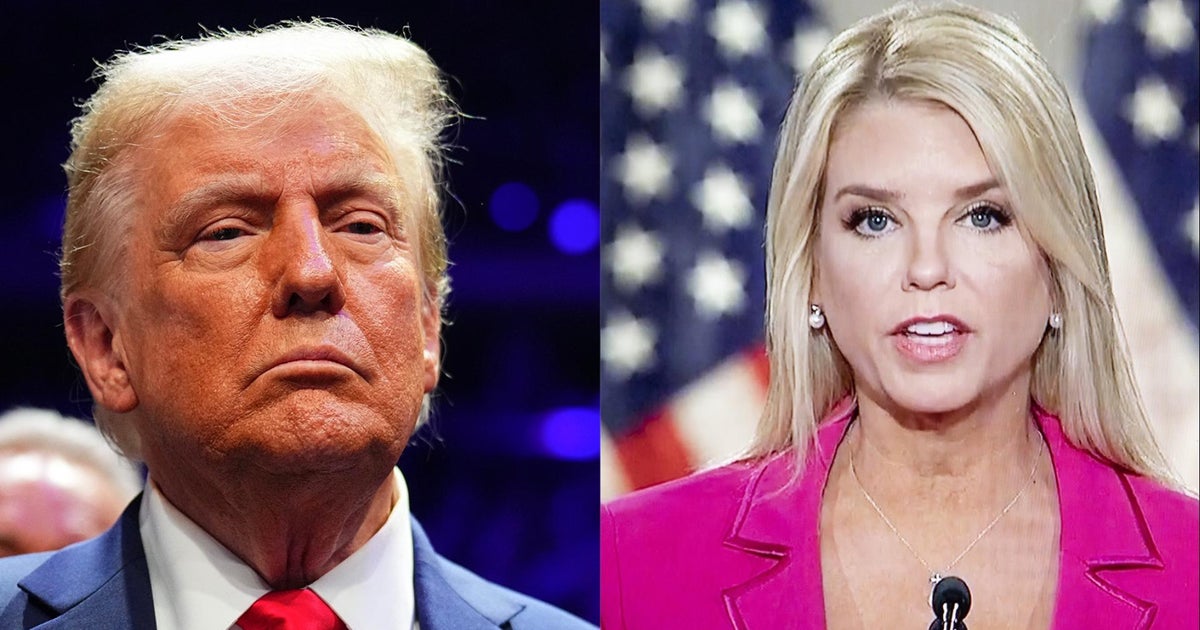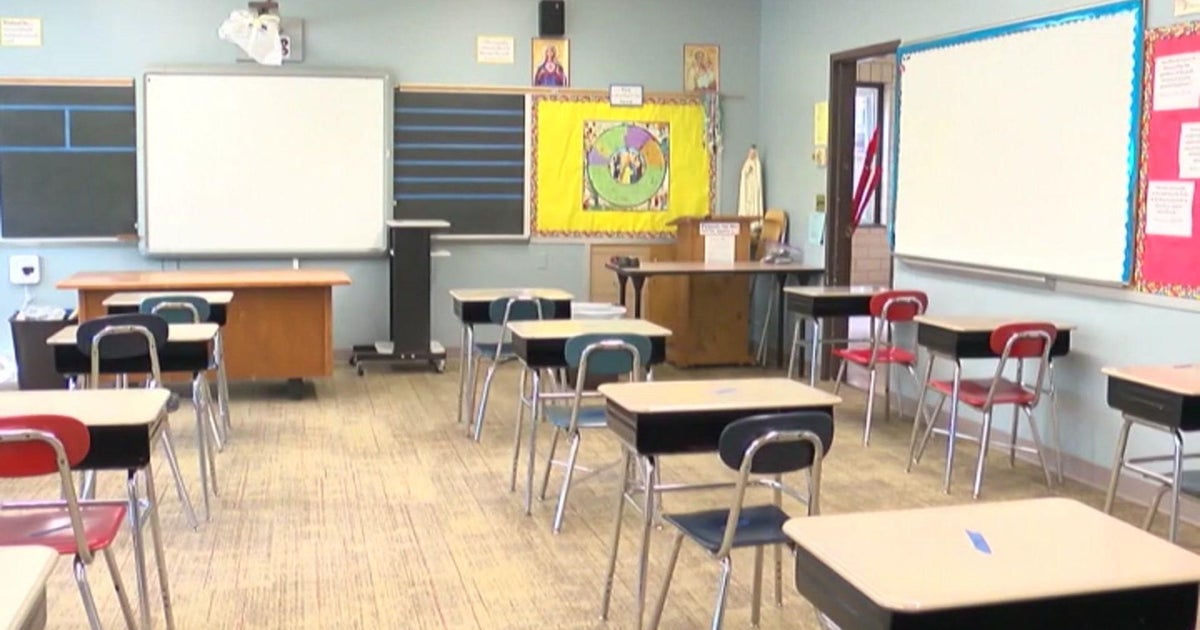Texas Sen. Cruz Leads 11 GOP Senators In Challenging Biden's Win Over Trump
WASHINGTON (CBSDFW.COM/AP) — A coalition of 11 Republican senators led by Ted Cruz of Texas announced Saturday it will challenge the outcome of the presidential election by voting to reject electors from some states when Congress meets next week to certify the Electoral College results that confirmed President-elect Joe Biden won.
President Donald Trump's refusal to accept his election defeat and the effort to subvert the will of the voters has become a defining moment for Republicans and is tearing the party apart. Senate Majority Leader Mitch McConnell has urged Republican not to try to overturn the election.
The 11 senators said they will vote against certain state electors unless Congress appoints an electoral commission to immediately conduct an audit of the election results. They acknowledged they are unlikely to change the results of the election.
"We intend to vote on January 6 to reject the electors from disputed states as not 'regularly given' and 'lawfully certified' (the statutory requisite), unless and until that emergency 10-day audit is completed," they wrote in the statement.
"We do not take this action lightly," they said.
In response to Trump's unfounded claims of voter fraud, bipartisan election officials and Trump's then-Attorney General William Barr have said there was no evidence of widespread fraud and the election ran smoothly.
The days ahead are expected to do little to change the outcome. Biden is set to be inaugurated Jan. 20 after winning the Electoral College vote 306-232.
Sen. Josh Hawley of Missouri was the first to defy McConnell by announcing he would join House Republicans in objecting to the state tallies during Wednesday's joint session of Congress.
On the other side of the party's split, Sen. Ben Sasse of Nebraska warned such challenges are a "dangerous ploy" threatening the nation's civic norms.
The issue is forcing Republicans to make choices that will set the contours of the post-Trump era and an evolving GOP. Caught in the middle is Vice President Mike Pence, who faces growing pressure and a lawsuit from Trump's allies over his ceremonial role in presiding over the session Wednesday.
"I will not be participating in a project to overturn the election," Sasse wrote in a lengthy social media post. Sasse, a potential 2024 presidential contender, said he was "urging my colleagues also to reject this dangerous ploy."
Trump, the first president to lose a reelection bid in almost 30 years, has attributed his defeat to widespread voter fraud, despite the consensus of nonpartisan election officials that there wasn't any. Of the roughly 50 lawsuits the president and his allies have filed challenging election results, nearly all have been dismissed or dropped. He's also lost twice at the U.S. Supreme Court.
Still, the president has pushed Republican senators to pursue his unfounded charges even though the Electoral College has already cemented Biden's victory and all that's left is Congress' formal recognition of the count before the new president is sworn in.
"We are letting people vote their conscience," Sen. John Thune, the second-ranking Republican, told reporters at the Capitol.
Thune's remarks as the GOP whip in charge of rounding up votes show that Republican leadership is not putting its muscle behind Trump's demands, but allowing senators to choose their course. He noted the gravity of questioning the election outcome.
"This is an issue that's incredibly consequential, incredibly rare historically and very precedent-setting," he said. "This is a big vote. They are thinking about it."
Pence will be carefully watched as he presides over what is typically a routine vote count in Congress but is now heading toward a prolonged showdown that could extend into Wednesday night, depending on how many challenges are mounted.
The vice president is being sued by a group of Republicans who want Pence to have the power to overturn the election results by doing away with an 1887 law that spells out how Congress handles the vote count.
Trump's own Justice Department may have complicated what is already a highly improbable effort to upend the ritualistic count. It asked a federal judge to dismiss the last-gasp lawsuit from Rep. Louie Gohmert, R-Texas, and a group of Republican electors from Arizona who are seeking to force Pence to step outside mere ceremony and shape the outcome of the vote.
In a court filing in Texas, the department said they have "have sued the wrong defendant" and Pence should not be the target of the legal action.
"A suit to establish that the Vice President has discretion over the count, filed against the Vice President, is a walking legal contradiction," the department argues.
A judge in Texas dismissed the Gohmert lawsuit Friday night. U.S. District Judge Jeremy Kernodle, a Trump appointee, wrote that the plaintiffs "allege an injury that is not fairly traceable" to Pence, "and is unlikely to be redressed by the requested relief."
To ward off a dramatic unraveling, McConnell convened a conference call with Republican senators Thursday specifically to address the coming joint session and logistics of tallying the vote, according to several Republicans granted anonymity to discuss the private call.
The Republican leader pointedly called on Hawley to answer questions about his challenge to Biden's victory, according to two of the Republicans.
But there was no response because Hawley was a no-show, the Republicans said.
His office did not respond to a request for comment.
Sen. Pat Toomey, R-Pa., who has acknowledged Biden's victory and defended his state's elections systems as valid and accurate, spoke up on the call, objecting to those challenging Pennsylvania's results and making clear he disagrees with Hawley's plan to contest the result, his office said in a statement.
McConnell had previously warned GOP senators not to participate in raising objections, saying it would be a terrible vote for colleagues. In essence, lawmakers would be forced to choose between the will of the outgoing president and that of the voters.
Several Republicans have indicated they are under pressure from constituents back home to show they are fighting for Trump in his baseless campaign to stay in office.
The entire joint statement by the 11 senators can be read below:
"America is a Republic whose leaders are chosen in democratic elections. Those elections, in turn, must comply with the Constitution and with federal and state law.
"When the voters fairly decide an election, pursuant to the rule of law, the losing candidate should acknowledge and respect the legitimacy of that election. And, if the voters choose to elect a new office-holder, our Nation should have a peaceful transfer of power.
"The election of 2020, like the election of 2016, was hard fought and, in many swing states, narrowly decided. The 2020 election, however, featured unprecedented allegations of voter fraud, violations and lax enforcement of election law, and other voting irregularities.
"Voter fraud has posed a persistent challenge in our elections, although its breadth and scope are disputed. By any measure, the allegations of fraud and irregularities in the 2020 election exceed any in our lifetimes.
"And those allegations are not believed just by one individual candidate. Instead, they are widespread. Reuters/Ipsos polling, tragically, shows that 39% of Americans believe 'the election was rigged.' That belief is held by Republicans (67%), Democrats (17%), and Independents (31%).
"Some Members of Congress disagree with that assessment, as do many members of the media.
"But, whether or not our elected officials or journalists believe it, that deep distrust of our democratic processes will not magically disappear. It should concern us all. And it poses an ongoing threat to the legitimacy of any subsequent administrations.
"Ideally, the courts would have heard evidence and resolved these claims of serious election fraud. Twice, the Supreme Court had the opportunity to do so; twice, the Court declined.
"On January 6, it is incumbent on Congress to vote on whether to certify the 2020 election results. That vote is the lone constitutional power remaining to consider and force resolution of the multiple allegations of serious voter fraud.
"At that quadrennial joint session, there is long precedent of Democratic Members of Congress raising objections to presidential election results, as they did in 1969, 2001, 2005, and 2017. And, in both 1969 and 2005, a Democratic Senator joined with a Democratic House Member in forcing votes in both houses on whether to accept the presidential electors being challenged.
"The most direct precedent on this question arose in 1877, following serious allegations of fraud and illegal conduct in the Hayes-Tilden presidential race. Specifically, the elections in three states—Florida, Louisiana, and South Carolina—were alleged to have been conducted illegally.
"In 1877, Congress did not ignore those allegations, nor did the media simply dismiss those raising them as radicals trying to undermine democracy. Instead, Congress appointed an Electoral Commission—consisting of five Senators, five House Members, and five Supreme Court Justices—to consider and resolve the disputed returns.
"We should follow that precedent. To wit, Congress should immediately appoint an Electoral Commission, with full investigatory and fact-finding authority, to conduct an emergency 10-day audit of the election returns in the disputed states. Once completed, individual states would evaluate the Commission's findings and could convene a special legislative session to certify a change in their vote, if needed.
"Accordingly, we intend to vote on January 6 to reject the electors from disputed states as not 'regularly given' and 'lawfully certified' (the statutory requisite), unless and until that emergency 10-day audit is completed.
"We are not naïve. We fully expect most if not all Democrats, and perhaps more than a few Republicans, to vote otherwise. But support of election integrity should not be a partisan issue. A fair and credible audit—conducted expeditiously and completed well before January 20—would dramatically improve Americans' faith in our electoral process and would significantly enhance the legitimacy of whoever becomes our next President. We owe that to the People.
"These are matters worthy of the Congress, and entrusted to us to defend. We do not take this action lightly. We are acting not to thwart the democratic process, but rather to protect it. And every one of us should act together to ensure that the election was lawfully conducted under the Constitution and to do everything we can to restore faith in our Democracy."
(© Copyright 2021 CBS Broadcasting Inc. All Rights Reserved. The Associated Press contributed to this report.)
MORE FROM CBSDFW



